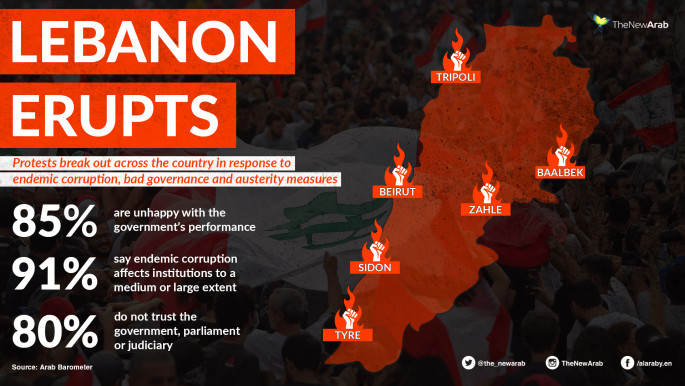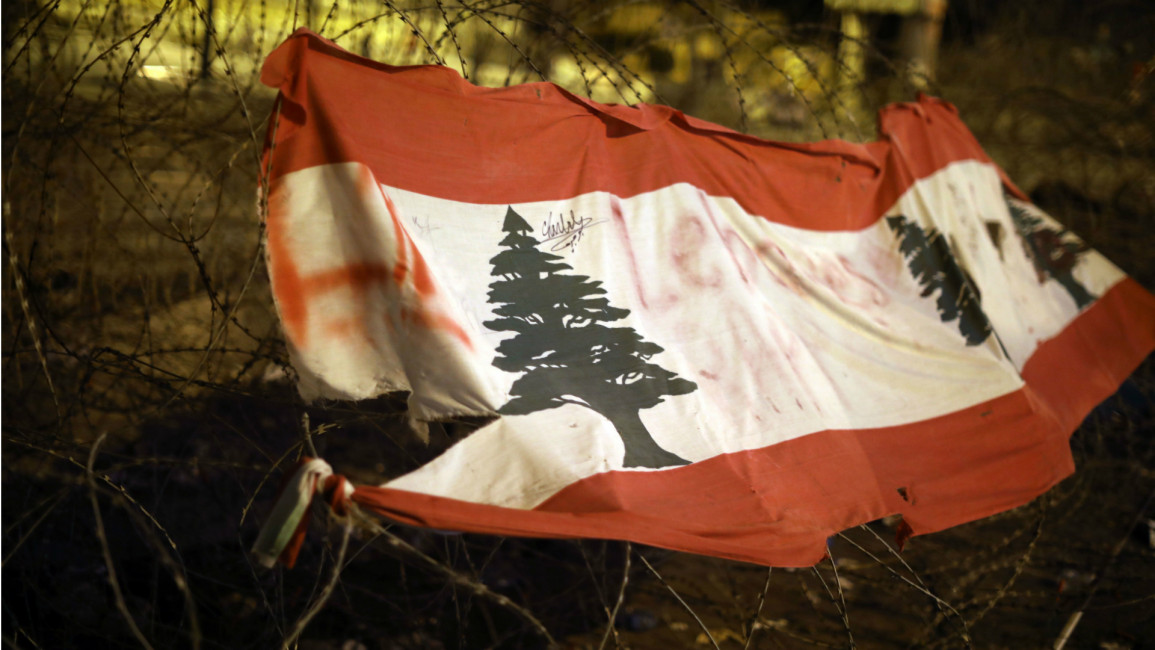Suicide epidemic sweeps Lebanon amid economic downturn
Danny Abou Haider, 41, ended his life shortly after returning from work, his father who was in the house at the time told local media.
It was reported that Haider had been dismissed from his job, where he had only received only part of his salary the previous month.
A second suicide was reported on Wednesday after the body of Antonio Tannous, a member of the Internal Security Forces, was found in the outskirts of Akkar, with his gun by his side.
Wednesday's reported suicides are not the first arising amid the harsh economic conditions faced by many in Lebanon today.
Naji Fliti, a 40-year-old father of two, committed suicide outside his home in the border region of Arsal on Sunday after he was unable pay outstanding medical bills for his cancer-stricken wife, according to local reports.
His death resonated with many on social media, who blamed the country's under-fire political class for failing to address a months-long economic downturn.
"He is a victim of this regime, of this political class and their financial and monetary policies," Doumit Azzi Draiby, an activist, said on Twitter.
Protesters gathered in central Beirut on Wednesday to mourn Abi Haidar's death.
"How many more suicides do you want?" read one placard raised by a protester.
 |
| Click here to enlarge |
Lebanon's dire economic situation has resulted in inflation, swelling unemployment and fears of a currency devaluation.
Last month, banks rolled out currency control measures, putting limits on the amount people can withdraw.
The World Bank says around a third of Lebanese live in poverty and has warned the struggling economy could further deteriorate if a new cabinet is not formed quickly.
A state of anxiety
A number of attempted suicides were also reported on Wednesday, including one of a man who was hospitalised after setting himself on fire and another man prevented from jumping off a tall building.
Many have also reached out to the local NGO Embrace, who runs a suicide prevention hotline.
"Those thinking of attempting suicide are most likely suffering a mental illness, which comes as a result of increased stress and anxiety," Lea Zeinoun, executive director at Embrace, told The New Arab.
"So there is a biological factor there, which is then amplified by environmental and economic factor.
"It is important not to pinpoint a suicide to one factor, as that simplifies the situation of mental illness, which is much deeper than that," Zeinoun says.
"When it comes to suicide, it is important to mention two things. Firstly, there are people who think about it, and secondly, there are people who attempt it," Zeinoun said, noting that the organisation has had an increase in rate of calls recently.
"We encourage people to reach out and speak to someone and we offer a telephone service to support them."
Embrace had requested from government officials to enable their prevention hotline to be accessed free of charge.
"They refused to do that," she tells The New Arab. "So now we tell those who cannot afford to call us to give us a missed call and we would call them back."
The group operates with volunteers who have undergone specialised training in listening and suicide risk assessment. Their hotline number is 1564.
Follow us on Twitter and Instagram to stay connected


![Minnesota Tim Walz is working to court Muslim voters. [Getty]](/sites/default/files/styles/image_684x385/public/2169747529.jpeg?h=a5f2f23a&itok=b63Wif2V)




![Debris near Rafic Hariri International Airport [Getty]](/sites/default/files/styles/image_330x185/public/2176162423.jpeg?h=a5f2f23a&itok=MCSK9mkM)
![An Israeli air strike on Jabalia killed teenage journalist Hassan Hamad [Screengrab/X]](/sites/default/files/styles/image_330x185/public/2024-10/hassan%20hamad1.jpg?h=c12e0b96&itok=Rd_dyCVp)
